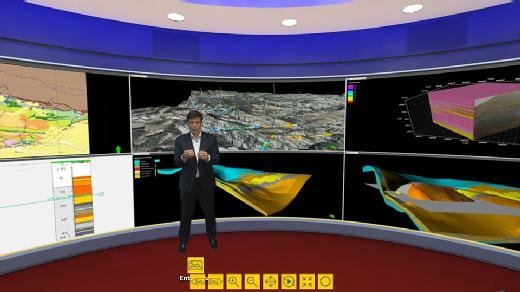
Michael Rosskothen - Fotolia
Shell makes $200m saving with virtual learning environment
Royal Dutch Shell has saved hundreds of millions by replacing field trips with interactive training that allows employees to interact with geological formations from their computer screen
Royal Dutch Shell, the British-Dutch oil and gas multinational, has cut the cost of some of its most expensive learning programmes by 90% by developing interactive learning platforms for staff.
Virtual lessons, which feature interactive videos and graphics, are replacing expensive field trips and geology primers, as well as being used to support leadership and behavioural learning.
Shell’s use of virtual, immersive learning – an example of which Shell has made available online – has delivered dramatic savings already, with more in the pipeline. To date, it has delivered more than 12,000 virtual lessons, saving the business $200m after development costs.
Jorrit van der Togt, executive vice-president of human resources (HR) strategy for Shell, said the company’s investment in virtual learning is part of a 15-year digital transformation journey for the business, embarked on in 2002, that has delivered benefits quickly, with the promise of more to come.
“We started by looking at the potential to move field learning into a virtual environment, but in fact virtual, immersive learning is a bigger play even than that,” said van der Togt.
“It is faster, cheaper, more challenging and more fun than other types of learning – and it is also deeper. Where e-learning in the recent past was persuasive because it was cheaper to deliver, today’s immersive learning is compelling because it is better.”
Van der Togt, speaking at an industry conference, said virtual learning has proved revolutionary because it mimics the work environment but delivers faster feedback with greater intensity and is more fun.
“We benefit from the way it facilitates a community of practice, too,” added van der Togt. “For each learner, there is the knowledge that you are not on your own. You are part of an intelligence network – and you are in it together,” he said at HR Tech World (Unleash) in Amsterdam.
Read more about human resources technology
- Automobile glass repair company Carglass France is using knowledge-sharing technology to distribute expertise among 3,000 employees.
- Digital technology is changing the way companies manage their workforce at an accelerating rate.
- Airbus has created a digital learning library that is helping more than 100,000 staff in 35 countries keep their skills updated.
For Shell’s leadership, van der Togt said virtual learning offers the space to put new ideas into practice, and is underpinned by personalised feedback and recommendations for employees.
“What the learning environment delivers is true engagement, not just for management but for all our workers – and it is a key driver of performance. Engagement is the x-factor that results in real change and real improvements,” he said.
15-year digital transformation
Shell’s investment in its virtual learning environment is part of a wider digital transformation that’s been running for a decade and a half at the oil and gas business.
“This kind of change is a long-term commitment,” said van der Togt. “It started, in the period 2002 to 2007, with a push to create a genuinely globalised IT infrastructure. Fast-forward to the past few years and we’ve had the base from which to up the pace.”
Shell has deployed Workday’s HR platform in the cloud, which it says delivers a good user experience for its employees, and has backed it up with big investments in data and analytics.

“We worked out a long time ago [that] unless you are working with high-quality data, you won’t succeed,” said van der Togt. “For analytics to deliver on its potential, you need your data to deliver true insights. It’s that which enables a business to make predictions with confidence or create business value in other ways.”
Now the Workday platform is starting to deliver not just for employees, but in the recruitment process too, said van der Togt. “It’s most striking, perhaps, in our graduate programme. We see 100,000 applicants for fewer than 1,000 places on our programme each year,” he said.
Candidates are taken through a computerised application, assessments and a virtual interview. “It’s only when we take graduates on that we meet them in person,” he added.









